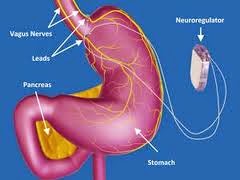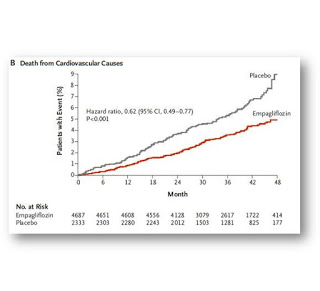As severe obesity has proven so difficult to treat, much study is underway to try to find innovative treatment options.
The vagus nerve is thought to play an important role in the feeling of fullness (called ‘satiety’) and metabolism, so the question has arisen as to whether blocking this nerve could help to treat obesity.
An interesting study recently reported in the Journal of the American Medical Association (JAMA) was published, evaluating whether intermittent blockade of the vagus nerve would be effective to induce weight loss.
This study was a randomized, controlled trial of 239 patients with a Body Mass Index (BMI) between 35-45, where an electrical device was implanted to intermittently block the vagal nerve in half of the patients, and the other half had a ‘sham’ surgery (meaning they went through the implantation procedure, but the device was not hooked up to the vagus nerve). All patients received lifestyle counseling.
They found that at 1 year, the vagal blockade patients lost a little more weight (3.2%) than the control group, but the vagal blockade group also had a higher risk of serious adverse events (8.6% vs none in the control group). Interestingly, the control group, with lifestyle counseling only, lost 6% of their body weight (compared to 9.2% in the vagal blockade group), showing that lifestyle counseling alone (plus a possible placebo effect of the sham surgery) can result in substantial weight loss.
So, based on this study, intermittent vagal nerve blockade doesn’t seem like a promising option – weight loss benefits are minimal, and the rate of serious adverse events is concerning.












